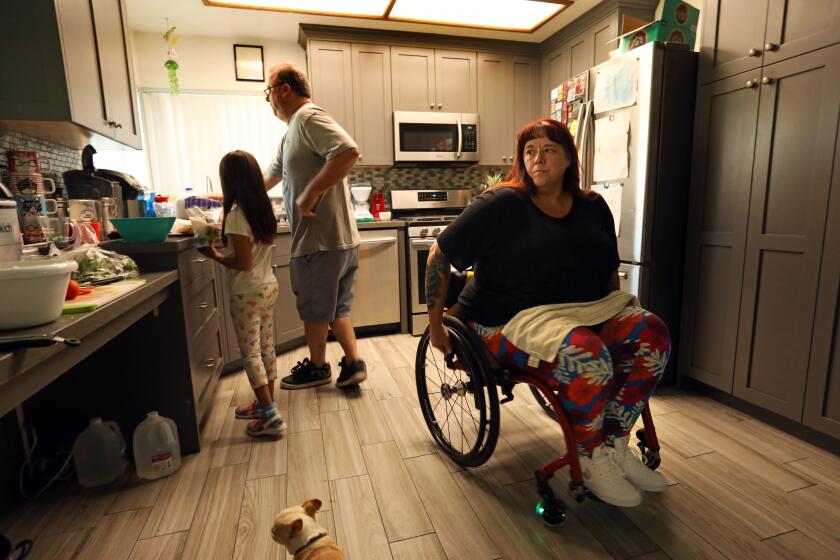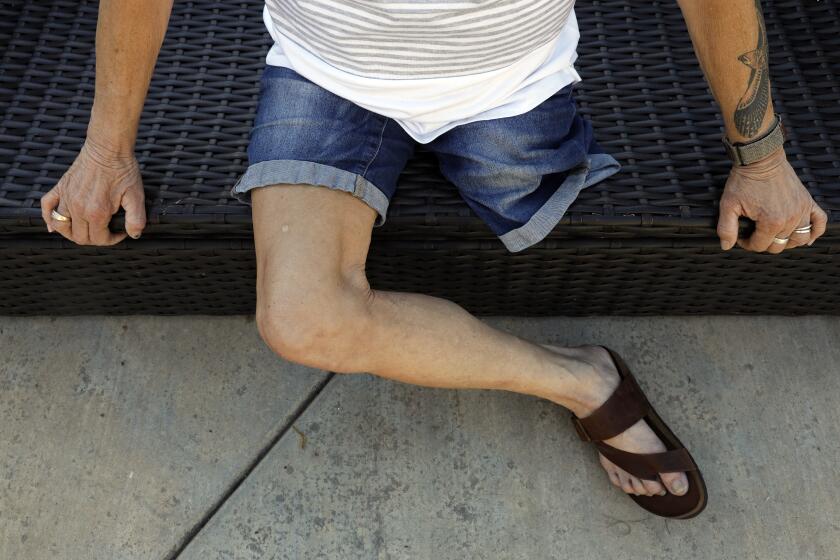California lawmakers pass reforms to doctor discipline cases, giving patients a voice
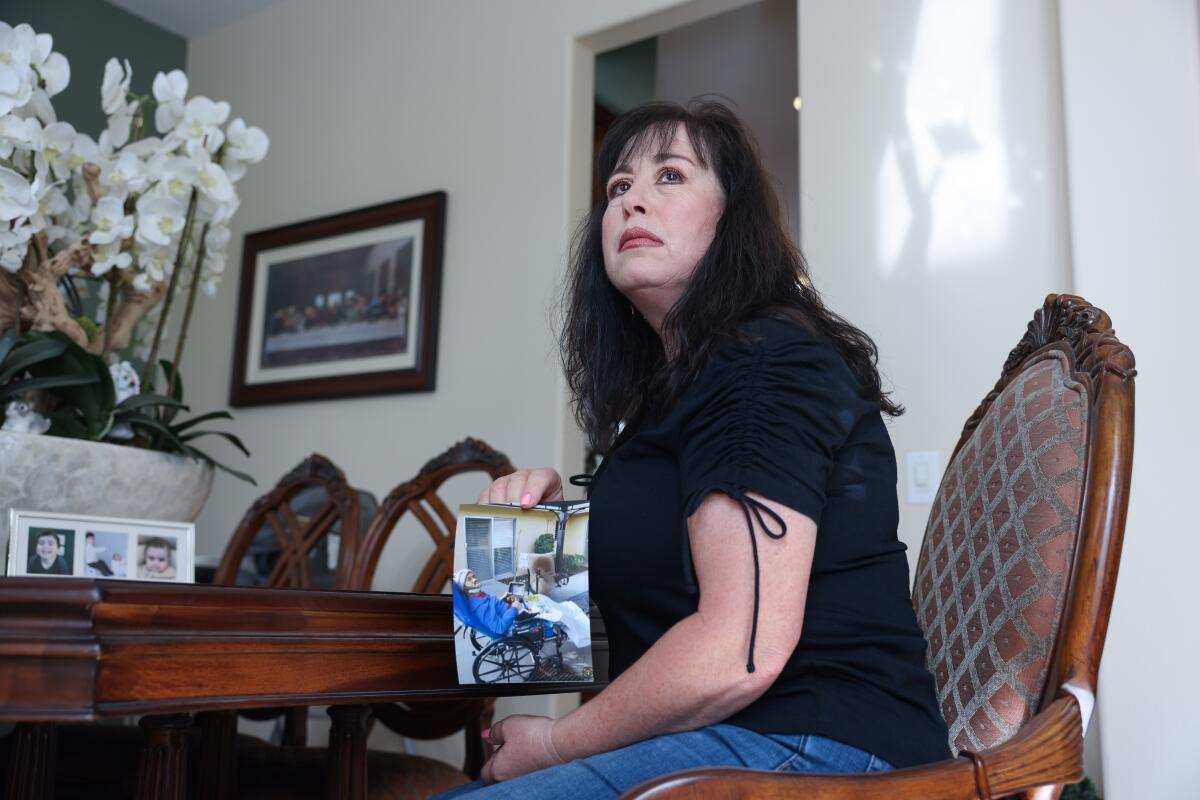
- Share via
When Angela Contreras complained to the state’s medical board in the fall that a Long Beach doctor had left gauze in her brother’s abdomen during surgery, she waited — and waited — for the board to respond.
Nearly a year after sending the board detailed medical records of the complications that ensued in her brother’s case, she received a form letter stating the board was “unable to meet the burden of proof required to pursue administrative action.” It offered no details on why the medical records she had provided had been insufficient.
“This board,” she said, “is a disaster.” It was a feeling familiar to many longtime critics of the Medical Board of California, which licenses and regulates physicians.
Now, patients and families are about to acquire a bigger voice in disciplinary proceedings before the influential but long troubled board, which has been beset by a lack of funding and harshly criticized for lax oversight of negligent doctors.
On Thursday, the state Legislature passed a bill that would — for the first time — require board investigators to interview patients or their families before closing a complaint, create a complaint liaison unit to help the public navigate the enforcement process and allow victim impact statements to be considered by the board before voting on a disciplinary case.
Serious malpractice leading to the loss of limbs, paralysis and the deaths of patients wasn’t enough for the California Medical Board to stop these bad doctors from continuing to practice medicine.
Senate Bill 815 by Sen. Richard Roth (D-Riverside) is intended to include patients in the board’s enforcement process, which critics say has shut out medical negligence victims and left board members with an incomplete picture of the gravity of cases. The bill now heads to Gov. Gavin Newsom, who is expected to sign it.
Carmen Balber, executive director of the nonprofit Consumer Watchdog, said this year’s bill includes meaningful reforms patient advocates have been pleading for.
“By closing a complaint before speaking to the family who submitted it, it increases the board’s chances exponentially that they don’t have the whole story,” Balber said. “The public does not know what the board needs to move a case forward. That’s why they need to communicate with patients when they submit a complaint.”
The bill also raises doctor licensing fees by 33%, providing critical funding for the medical board, which has been surviving on loans. But although staunch critics of the board say this year’s bill is a major win, some of the most far-reaching changes — including adjusting the composition of the board and evidentiary standards — were stripped from SB 815 in recent weeks in the state Assembly. The 15-member board currently comprises eight physicians and seven members of the public. Most members are appointed by the governor.
San Diego spinal surgeon Lokesh Tantuwaya was indicted by the feds for fraud and is in jail awaiting trial. But his medical license is still active.
“Does this [bill] radically overhaul the board? No,” Balber said. “There’s a lot more changes we need. And we’re disappointed in the weakening of this bill along the way, but it does give consumers a real voice in the enforcement process.”
The reforms follow a Times investigation that found the medical board consistently allowed doctors accused of negligence to continue practicing and harming patients, in some cases leaving them dead, paralyzed, brain-damaged and missing limbs. The state licensing board allowed some doctors to keep seeing patients even after accusing them of hiding significant medical errors from patients and investigators.
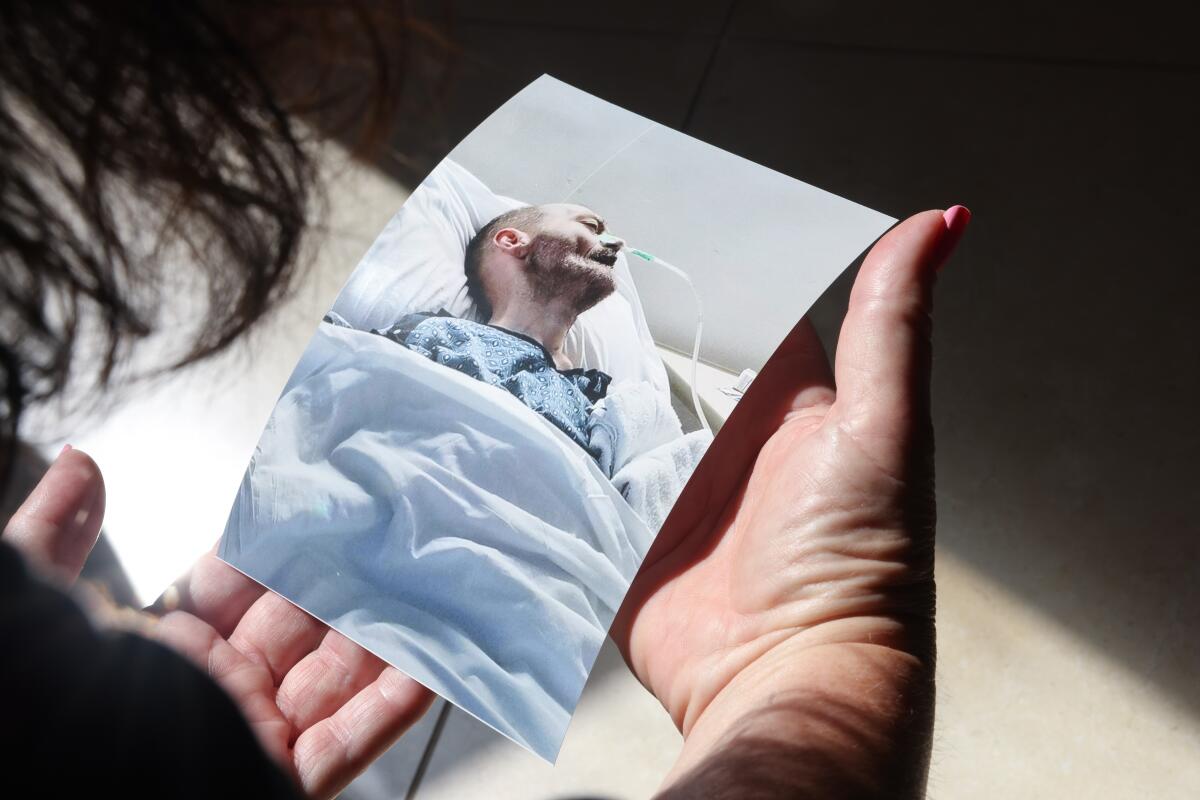
The Times’ analysis in 2021 showed the medical board received nearly 90,000 complaints against doctors in the last decade from patients, nurses, fellow physicians and others. Board investigators substantiated 3,100 of those, resulting in disciplinary action that mostly consisted of probation or a letter of reprimand. Only 439 — less than 0.5% of the original complaints — ended in licenses being revoked.
Medical board member Eserick “TJ” Watkins openly condemned the board’s failure to discipline negligent doctors during legislative hearings and board meetings. Watkins, a nondoctor member of the board, told The Times in 2021 that he routinely watched doctor-led disciplinary panels protect fellow doctors while ignoring aggrieved patients.
“It’s one thing to not feel heard; it’s another to be dismissed and ignored,” Watkins said at the time.
Watkins declined to be interviewed about the new bill.
An insider’s complaint asks the state to investigate the board, which he says fails to properly discipline doctor misconduct and dismisses patients’ claims.
Although the medical board has come to support overhauling its own makeup to a public-member majority, proposals to do so have stalled in each of the last three legislative sessions — most recently with it being amended out of SB 815 in the Assembly in July.
The Assembly removed another key provision from the bill this month — which would have reduced evidentiary standards used for determining whether discipline is warranted. Balber said that would have made it quicker, easier and less expensive to discipline doctors.
Currently, the board must show “clear and convincing proof to a reasonable certainty” that disciplinary actions such as public reprimands, probation, suspension or revocation are warranted. That is a lower burden of proof than the “beyond a reasonable doubt” standard in criminal prosecutions, but it is a higher bar than the “preponderance of evidence” in civil litigation, which requires a greater than 50% probability that a claim is true.
Medical boards in 41 other states and U.S. territories apply the preponderance standard that SB 815 sought to allow in most disciplinary cases.
“That was a real loss because that change would have sped up the enforcement process,” Balber said.
That change and the overhaul to a public-majority board have been fiercely fought by the California Medical Assn., the influential doctor lobby, which has long had significant sway in the state Capitol.
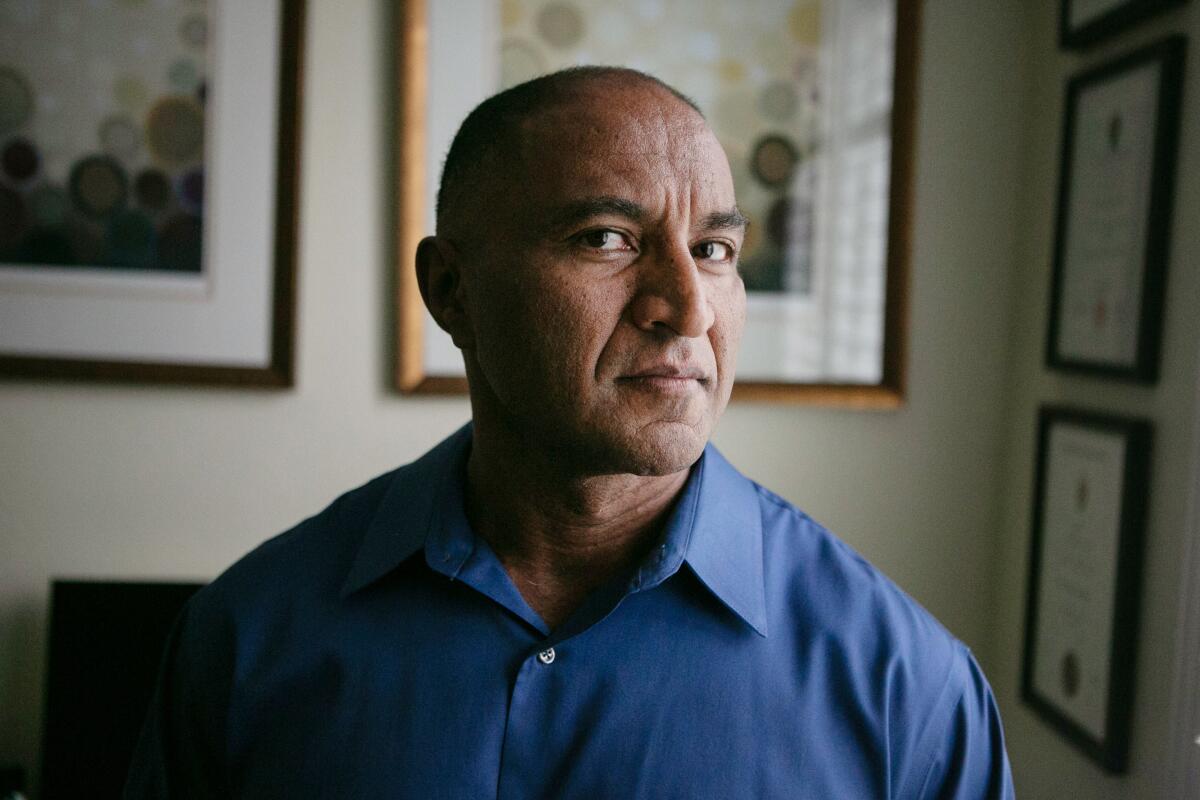
Two years ago, lawmakers approved a bill to bring in an enforcement monitor to oversee the board’s disciplinary actions and handling of complaints. The enforcement monitor found that the board referred 1 in 10 complaints to an investigator and that it took, on average, 1,167 days to complete an investigation during the 2021-22 fiscal year.
The enforcement monitor said the board’s lack of funding created uncertainty. Under this year’s bill, the board would raise doctor licensing fees that pay for board operations to $1,151 every two years — up from $863. That amount would increase to $1,255 in 2027.
SB 815 initially sought to raise licensing fees to $1,350 every two years. The medical association, often referred to as CMA, said that 56% increase was “unjustified” and that the fees are already among the highest in the nation.
“CMA remains committed to patient safety and ensuring the Medical Board of California has the necessary funds to operate, but this increase — despite being $200 lower than what they initially proposed — will make their license fee the second highest in the nation and more than double that of California’s other physician licensing board which has the same duties,” said CMA President Dr. Donaldo Hernandez.
Despite the already high fees, Hernandez said “physicians and recent medical school graduates are waiting months for their licenses to be processed.”
The state medical board has sought fee increases for years as it took on more and more debt to pay for its operations and enforcement programs.
“The simple reality is that the board is not able to pay its bills, which is why we’ve had to take on $18 million in loans just to maintain our typical operations,” Dr. Randy W. Hawkins, the medical board president, and Dr. Richard Thorp, a board member, said in a joint statement to lawmakers.
In a statement to The Times on Monday, Hawkins said the higher fee amount approved in the legislation will help ensure that the board can meet its financial obligations.
Other enforcement changes will provide “new tools that help us protect consumers from physicians who act unprofessionally,” he said.
SB 815 also allows a doctor’s license to be automatically revoked following the conviction of a serious felony, whether or not it is related to the physician’s practice of medicine.
The bill was introduced as part of the Legislature’s oversight process for boards and bureaus, known as a sunset review, which typically takes place every four years. As part of that process, the bill authorizes the medical board to exist beyond Jan. 1.
“These are historic reforms,” said Roth, the bill’s author. “Some of these advocates have been requesting for 10 or more years … this essentially says to patients, ‘Hey, listen, we hear you, we’re empowering you and we’re giving you a stronger voice in this process.’”
Once approved by Newsom as expected, two of the new patient transparency measures will not be implemented until six months after the board has the staffing — the complaint liaison unit and the requirement that patients or their families are interviewed prior to closing a complaint. Roth said he expects the process for both to start when the bill is effective Jan. 1 and that “hopefully we will see some implementation next year.”
For Contreras, the changes would come too late. The La Habra resident filed her complaint with the board in October and sent them her brother Carlo Sanfilippo’s medical records. She said the records provided a clear scenario: A surgeon had operated on her brother’s colon cancer, after which he suffered a series of complications, including an abscess, sepsis shock and an amputated leg.
The medical records include a notation from a second surgeon that “the loop end of a laparotomy pad” had been found during a subsequent operation. Sanfilippo had only ever been operated on by one other doctor, Contreras said.
“We suspect this was the source of his chronic abscesses and fistulas,” the second surgeon noted, according to portions of medical records shared by Contreras with The Times. The surgeon involved in the complaint declined to comment, citing patient privacy laws.
Sanfilippo, who had an intellectual disability, had been in crippling pain in the four years after his first surgery, Contreras said. He died in April at the age of 56.
“It was one thing after another,” she said. “He was never the same.”
She said she’s not sure the new changes will ensure patients and their families are truly heard by the medical board.
“I think it would help, but will they really listen?” she said.
More to Read
Sign up for Essential California
The most important California stories and recommendations in your inbox every morning.
You may occasionally receive promotional content from the Los Angeles Times.
